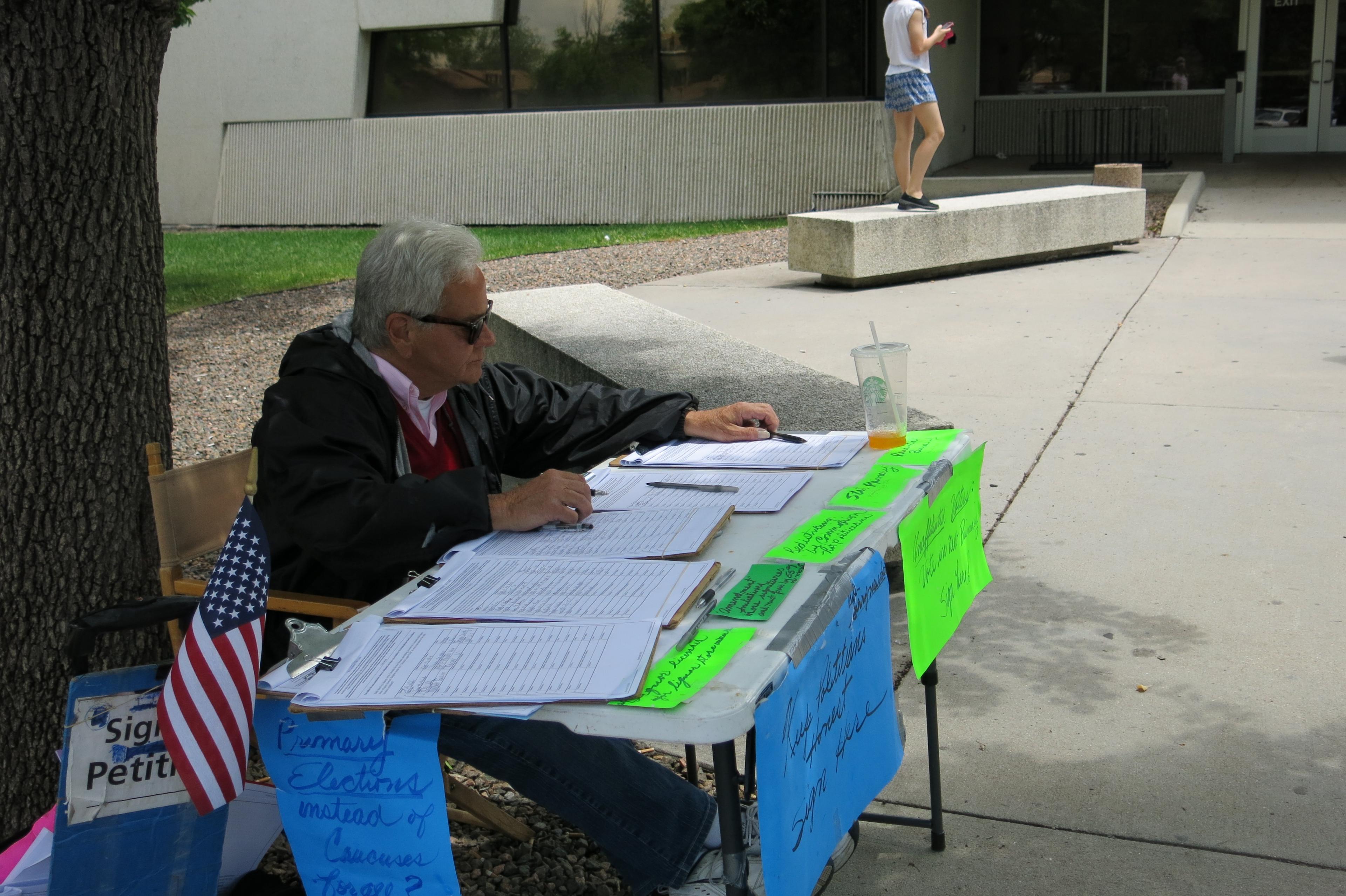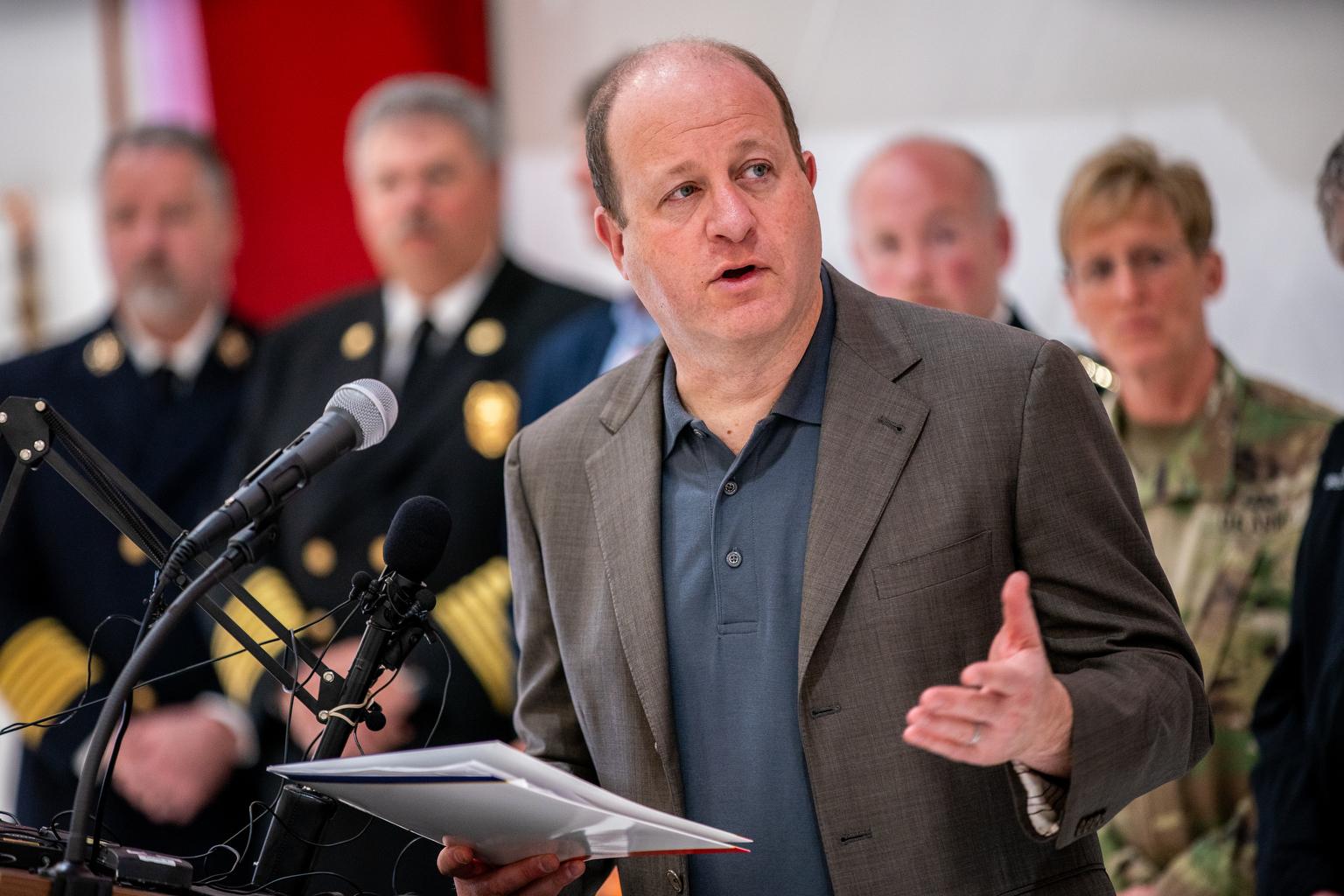
This story has been updated to include Lorena Garcia's court challenge.
When the deadline to turn in signatures for the June primary ballot arrived last month, Senate hopeful Michelle Ferrigno Warren was still thousands short of the needed amount. She seemed destined to join the more than a dozen other candidates whose campaigns petered out short of primary day.
But on Tuesday, a Denver judge revived her hopes, ruling that given the "almost futile" nature of trying to gather signatures during a pandemic, Ferrigno Warren should have a spot on the ballot.
It's a surprising development; after this past weekend's Democratic assembly, it appeared that the primary field was set, with former Gov. John Hickenlooper and former House Speaker Andrew Romanoff squaring off in the race to challenge Colorado’s Republican Sen. Cory Gardner. And it may not be the last addition to the ballot; social justice activist Lorena Garcia is also going to court to try to secure a spot.
Colorado has two routes onto the primary ballot: win enough support through the party assembly process, which Romanoff did, or submit enough signatures, which was the route Hickenlooper, Garcia, and Ferrigno Warren chose.
Ferrigno Warren's campaign gathered 8,378 signatures, with only 5,383 ruled valid by the Secretary of State's office. That's far short of the state's requirement that a candidate submit at least 10,500 valid signatures, collected across Colorado's seven congressional districts.
In his ruling, District Court Judge Christopher Baumann determined that her signature counts were enough to indicate "a significant modicum" of support around the state for her campaign.
“In the Court’s judgment, a 50 percent threshold is a reasonable line to draw in this particular case as it strikes a balance between still requiring Ms. Ferrigno Warren to demonstrate significant public support and acknowledging that through no fault of her own, Ms. Ferrigno Warren was forced to operate within an environment much more onerous to contacting (let alone persuading) potential electors to express that support,” Baumann wrote.
The Secretary of State's office argued that the court should apply a mathematical formula it developed to project whether, under normal circumstances, candidates were on track to gather enough signatures by the deadline. By those calculations, Ferrigno Warren was not.
However, Baumann determined Ferrigno Warren, an immigration activist and nonprofit executive, had a sound strategy for collecting the required number of signatures that was completely upended by the COVID-19 pandemic. Not only were voters less willing to sign petitions, but many of her paid circulators quit after learning they might have been exposed to the virus while working for another campaign.
The court said it did not seem right to interpret the election code under a strictly business-as-usual mentality.
“How and when life returns to normal are still open questions as the Court writes this order. This case shows the political process is not immune from the virus. Candidates, voters, and government officials have encountered a primary election season unlike any other in our history. It is within these circumstances, and in light of the arguments presented by Ms. Ferrigno Warren and the Secretary, that the Court concludes strict adherence to the signature requirement for primary petitions must yield to this unprecedented public health emergency," Baumann concludes.
Ferrigno Warren said she looked forward to continuing her campaign. She has never held office before and works for a Christian nonprofit that works on immigration and criminal justice issues.
“I am excited and ready to be the voice of everyday Coloradans on the primary ballot in June. COVID-19 has further shown us the partisanship of our politics and the harm it is doing to our citizens,” she said in a statement.
Hickenlooper's campaign declined to comment on Ferringo Warren’s addition to the ballot. Romanoff said he congratulated Ferrigno Warren “and look forward to rejoining her on the virtual campaign trail. Let’s debate!”
In Garcia's case, her campaign turned in 9,427 valid signatures and plans to use the Ferrigno Warren ruling to argue that she too has done enough to justify a place on the primary ballot.
It's unclear whether the Secretary of State's office will try to appeal the ruling.








